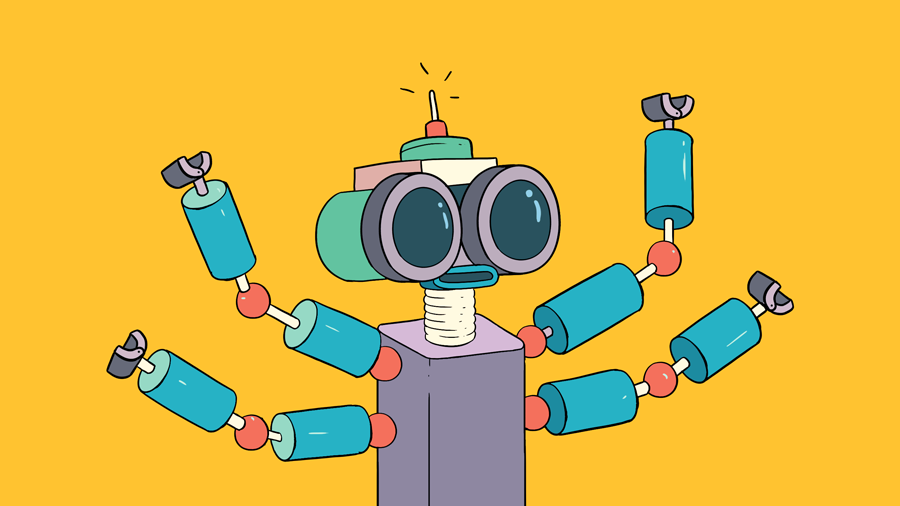About five years ago, venture investors poured cash into the promise of updating industrial facilities by connecting and modernizing them to push them into the current century.
Subscribe to the Crunchbase Daily
It was called “Industry 4.0,” or the Industrial IoT — and it also was pretty much a bust.
But after a pandemic caused massive industrial disruption and business priorities to shift, industrial automation once again has hit that sweet spot with investors. According to Crunchbase numbers, venture capital flowing into the space this year has already topped $1.4 billion in 104 funding deals, setting it up nicely to beat last year’s $1.7 billion in funding in 191 deals.
So far, 2021 is on track to be the best year for the sector since it saw more than $2 billion in venture investment in 2016.

“There does seem to be quite a bit of interest. It’s an exciting time,” said Berk Birand, CEO of New York-based machine-learning manufacturing software developer Fero Labs. The company just completed a $9 million Series A last week.
The space has seen some large rounds this year, including Berlin-based freight-forwarding company Sennder raising a $160 million Series D in January, Norway-based industrial IoT data platform Cognite closing a $150 million Series B in May, and Wilmington, Massachusetts-based warehouse robotics company Locus Robotics announcing a $150 million Series E in February.
Dynamics of a change
Many in the industry say those rounds and the overall increase in funding is due to many of the same factors causing other sectors to go through a digital transformation — namely a pandemic, labor shortages and a desire to be more sustainable.
“Because of COVID, companies want more transparency,” said Adrian Fortino, managing director at the Mercury Fund. “They want to understand what is happening from anywhere they are at.”
Fortino was an investor in the industrial automation space during its previous Industry 4.0 heyday, but sees several differences that makes him believe the time is now.
Along with the great control and transparency companies are seeking after the pandemic shuttered some facilities, Fortino is seeing larger industry players embrace digitization and be more willing to buy new technologies that help analyze their supply chains, improve processes in facilities, and provide great flexibility as market needs change.
“The difference I see from seven years ago is the buyers — they are ready to buy,” Fortino said.
Years ago, startups would try to hook large industrial players on new technology through a variety of pilot programs — all of which they lost money on when those industrial manufacturers declined to buy after the program was over, he said.
“Now these enterprise deals are there,” he said. “Companies are realizing the value.”
The status of the current workforce also undoubtedly plays a role. Birand said just as workers in other industries have become more remote, so has some of the industrial workforce — forcing manufacturers to put in the necessary technology upgrades to allow that to happen.
A dearth of tradespeople like technicians and electricians in the workforce are also forcing companies to look at other ways to compensate.
“Industrial companies are realizing if we can’t get those people then we’ll need to be more efficient,” Fortino said.
New tech
Investors in the space see a variety of new innovations and technology that are interesting buyers as all of these changes swirl about the market. Fortino said he continues to see interest around edge automation — where tech can analyze and even fix machines or equipment in the field.
Fortino himself has placed a bet there, investing in Canada-based oil and gas edge automation company Ambyint.
Supply chain transparency has also become important as the pandemic highlighted large holes in the way materials and goods flow. Fortino recently invested in Philadelphia-based Chain.io and expects that area of industrial automation to see growth as large enterprises look to tighten their supply chain and make it less ripe for disruption.
“Companies are seeking to be less reliant on unstable supply chains that have been exposed during the pandemic,” he said. “You are just seeing a much heavier focus on sustainability.”
Sam Smith-Eppsteiner, a partner at Innovation Endeavors and investor in Fero Labs, said what she sees is tech that makes industrial complexes more “flexible” will continue to attract investors.
She used the example of how so many facilities during the pandemic needed to shift their production away from business-sized or wholesale goods to more residential, individual-sized products as the lockdowns forced many people to abandon their office and work from home.
“That is hard for facilities,” said Smith-Eppsteiner of the change. “Anything that can layer intelligence into robotics or automation will be in demand.”
What a lot of this comes down to is large industrial manufacturers trying to get the most out of what they have — especially as much of manufacturing has relatively low margins.
Oakland, California-based Guidewheel just last week announced it had closed an $8 million Series A led by Greycroft. The company’s “FactoryOps” platform helps manufacturers solve production downtime.
“Companies just want to get more out of what they have, out of their existing machines,” said Guidewheel CEO Lauren Dunford.
Birand adds that the simple rules of supply-and-demand likely will drive industrial companies to adopt more automation technology to take advantage of the market.
“When demand is high, manufacturers just want to know how they can produce more,” he said.
Methodology
Data for this story encompasses startups tagged as industrial automation, according to Crunchbase data. Funding numbers include pre-seed, seed and all ventures rounds.
Illustration: Dom Guzman

Stay up to date with recent funding rounds, acquisitions, and more with the Crunchbase Daily.



![Illustration of a guy watering plants with a blocked hose - Global [Dom Guzman]](https://news.crunchbase.com/wp-content/uploads/quarterly-global-3-300x168.jpg)
67.1K Followers